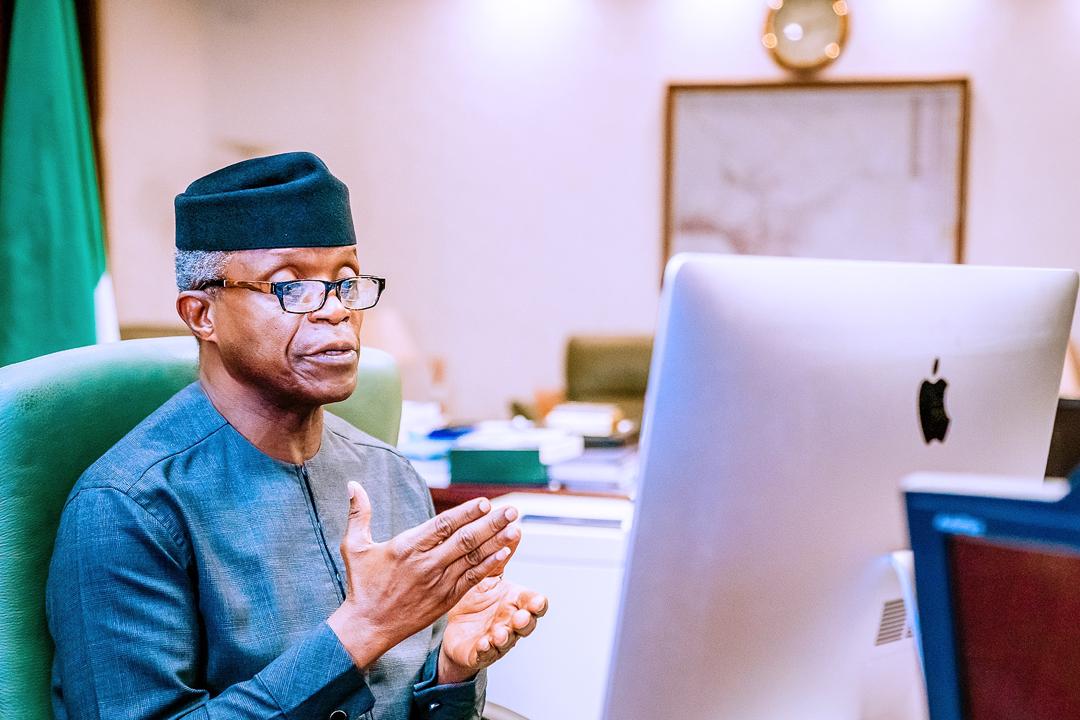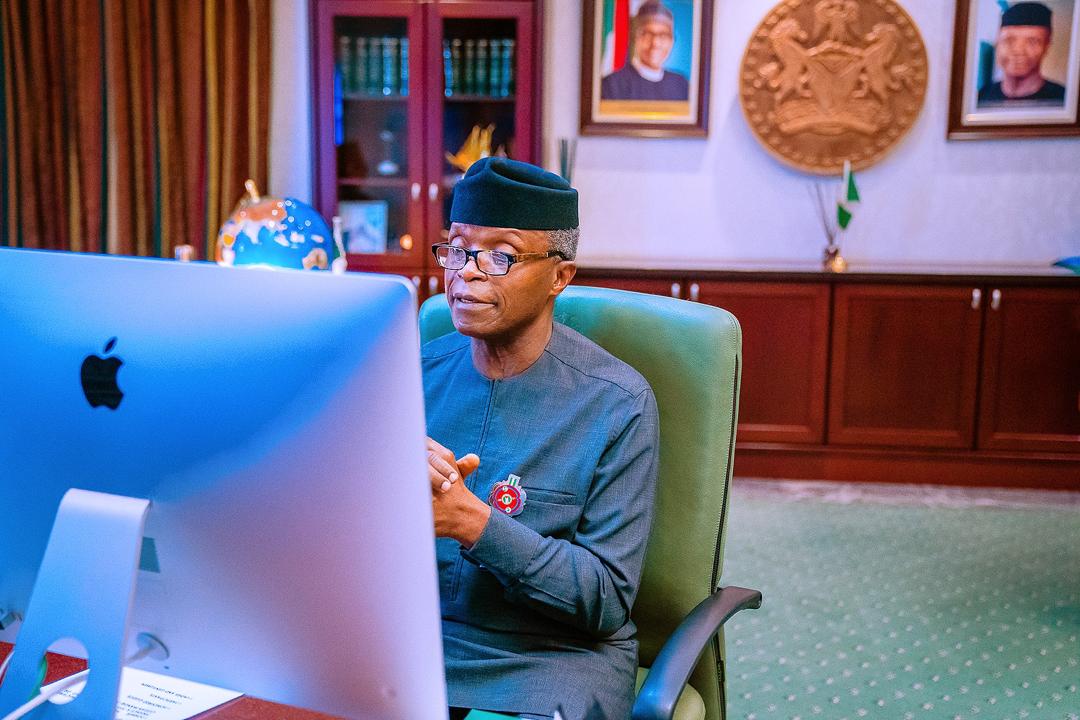Webinar On Deepening Nigerian Infrastructure Stock Through PPP
SPEECH BY HIS EXCELLENCY, PROF. YEMI OSINBAJO, SAN, GCON, VICE PRESIDENT OF THE FEDERAL REPUBLIC OF NIGERIA AND CHAIRMAN OF THE NATIONAL COUNCIL ON PRIVATISATION AT THE WEBINAR ON DEEPENING THE NIGERIAN INFRASTRUCTURE STOCK THROUGH PUBLIC-PRIVATE PARTNERSHIP (PPP) ON THE 3RD OF DECEMBER, 2020
PROTOCOLS
I am very pleased to welcome you all to this webinar on deepening Nigeria’s Infrastructure Stock through Public-Private Partnerships (PPPs).
In spite of Government interventions over the years, Nigeria still faces a huge infrastructural deficit, which is constraining rapid economic growth.
According to the Nigerian Integrated Infrastructure Masterplan (NIIMP) and the Economic Recovery & Growth Plan, Nigeria needs up to $3 trillion over the next 30 years to bridge the infrastructure gap.
To put this into perspective, the Federal Government would have to spend the entire revised 2020 appropriation of 10.81 trillion Naira continuously for the next 108 years or more on capital expenditure (CAPEX) to meet that target. The fact that only N2.49 trillion was appropriated for capital expenditure in 2020, reflects the importance of deliberate and pragmatic action to boost infrastructural spending.
It seems to me to be quite clear that the financial outlay and management capability required for infrastructural development and service delivery outstrip the financial and technical resources available to government.
In other words, the traditional method of building infrastructure through budgetary allocations is inadequate and set to become harder because of increasingly limited fiscal space.
The Federal Government recognizes this fact which is why we are considering other options to complement and boost financing for the development and maintenance of infrastructure in Nigeria. It is clear that this deficit can only be made up by private investment. Private sector is 92% of GDP while the Public Sector is mere 8%. So, the synergy between the public and private sector through Public-Private Partnerships (PPP) is really the realistic solution.
If properly designed and executed, PPP models will unlock innovative infrastructure financing and management in a transparent and more efficient manner. Indeed, using PPP frameworks, Nigeria has the potential to attract and benefit immensely from huge local and foreign private sector resources.
We have however not fully leveraged the opportunities afforded to us by public-private partnerships perhaps due to a lack of clarity on institutional responsibilities and decision criteria. There has indeed been some ambiguity, particularly as it pertains to the roles of the Infrastructure Concession Regulatory Commission (ICRC); and the Bureau of Public Enterprises (BPE); and other stakeholders involved in the PPP practice in the country.
The Federal Government has recently issued a circular on the administration of PPP projects in the country to provide the much-needed clarity. The circular re-emphasizes that the BPE shall be responsible for the concession of public enterprises and infrastructure already listed in the First and Second Schedules of the Public Enterprises Act.
The circular equally stipulates that the BPE shall act on behalf of the FGN as the counterparty on all infrastructure projects being developed on a PPP basis whilst the ICRC continues to act as the regulatory agency for PPP transactions with powers to inspect, supervise and monitor the projects and processes in order to ensure compliance with relevant laws, policies and regulations.
It is expected that this new policy direction would provide clarity to stakeholders and foster the improvement of PPP programmes in the country. Ministries, Departments and Agencies as well as the multilateral agencies and our development partners, are urged to support the PPP policy objectives and institutional arrangements already put up by Government. We are, of course, willing to dialogue and incorporate suggestions from stakeholders with a view to further strengthening Nigeria’s PPP framework.
As part of the new environment being created for the implementation of PPP projects, the Federal Government through the CBN, Nigerian Sovereign Investment Authority and African Finance Corporation and other financial institutions, will be creating a N15 trillion Infrastructure Fund that will help, not only unlock investment from local sources but also attract foreign private investment in infrastructure development. The Infraco Company will be professionally run by select managers who are chosen by internationally accepted standards.
We will bring in the best-qualified individuals to manage the Infraco because most investors will want to see a transparently run Infraco, and we intend to provide exactly that. This is to ensure that the investors’ resources are applied only to the best possible projects after the management of the company has looked at them and chosen them carefully, and because they are commercial projects, we have to make sure that the income streams from them will be more than sufficient to assure investors that their investments will be profitable.
In conclusion, I would like to state that the current deficit in Nigeria’s infrastructure presents both a challenge and an opportunity. For too long we have dwelt on the challenges but we must now redirect our focus to the opportunities, using PPPs as a springboard.
The Government of President Muhammadu Buhari is strongly committed to the development of the country’s infrastructure through PPP arrangements. We are therefore counting on the support and cooperation of our public and private sectors partners, our foreign partners, financial institutions and other important key stakeholders towards the successful implementation of the government’s new PPP policy directive.
I wish you fruitful deliberations.
Thank you very much.




